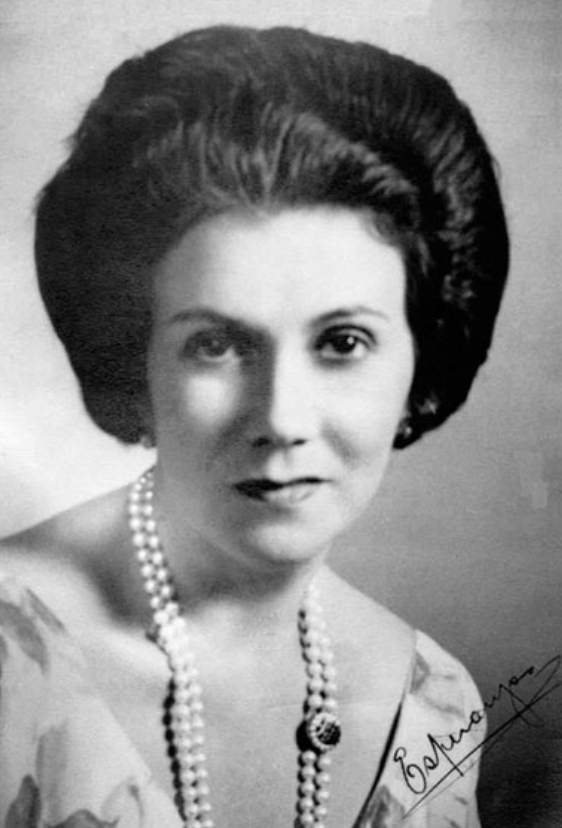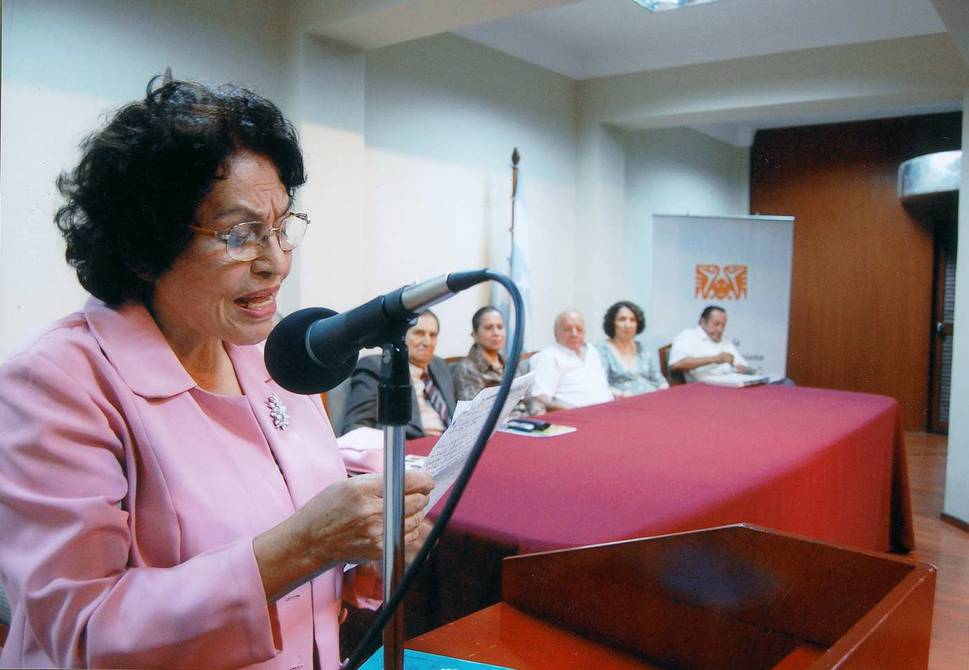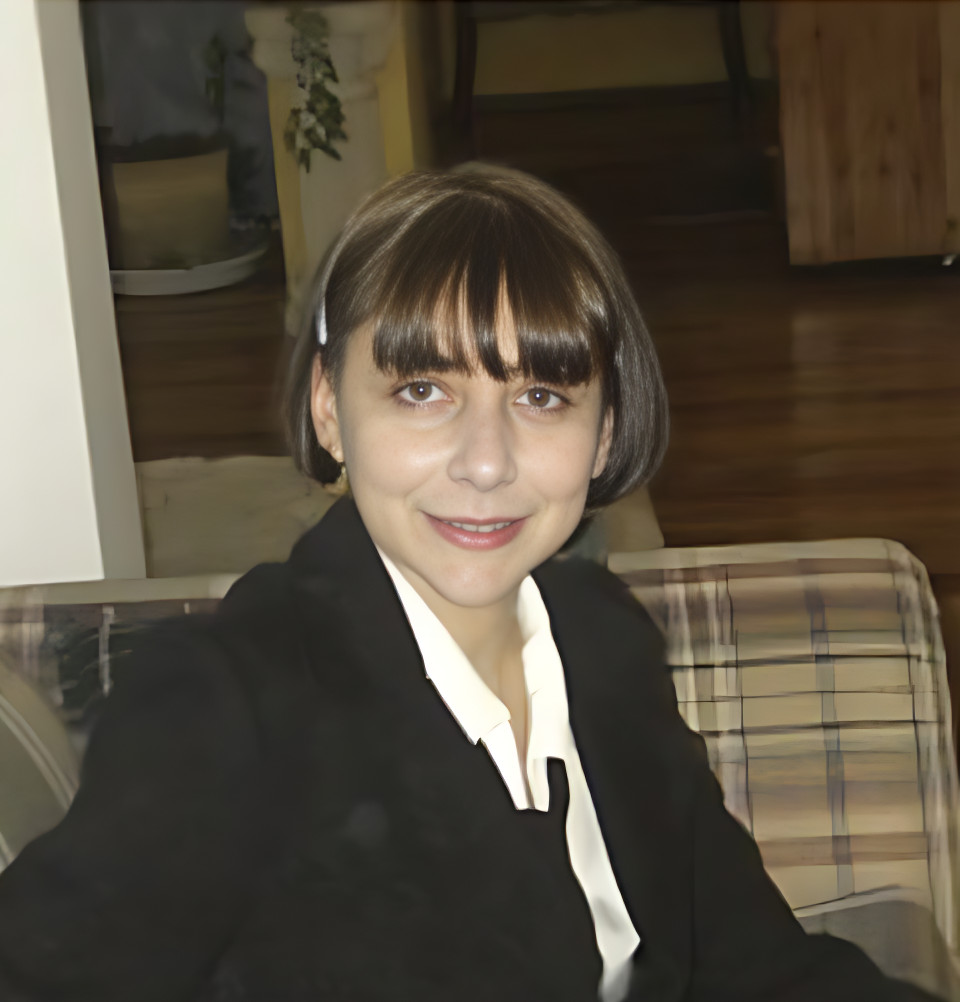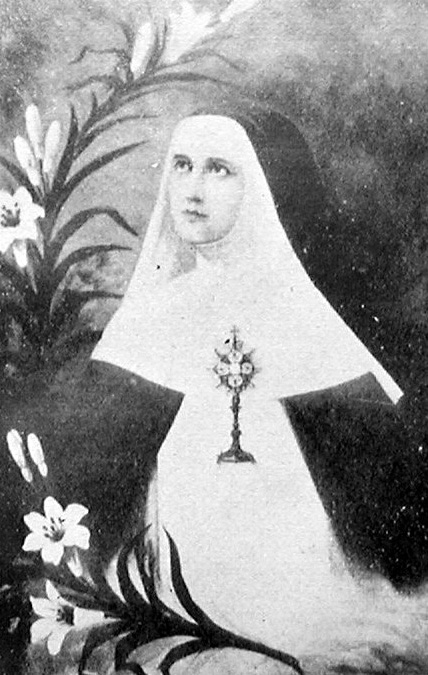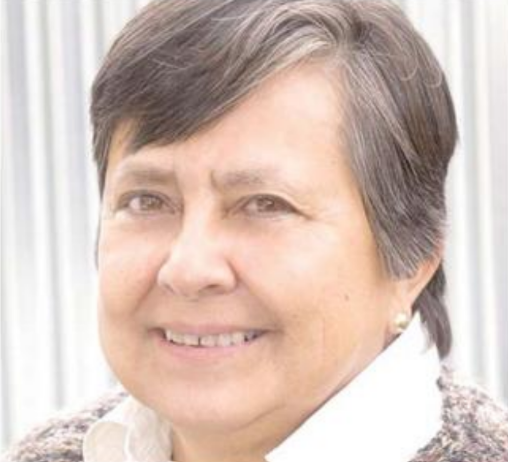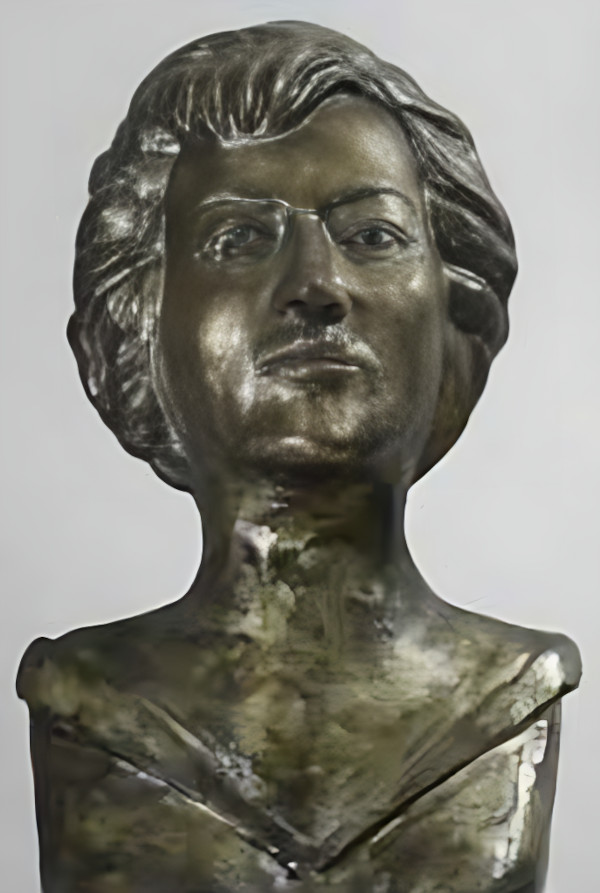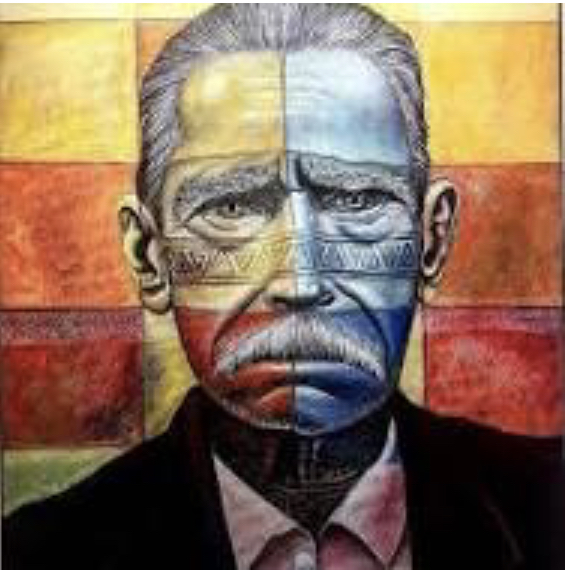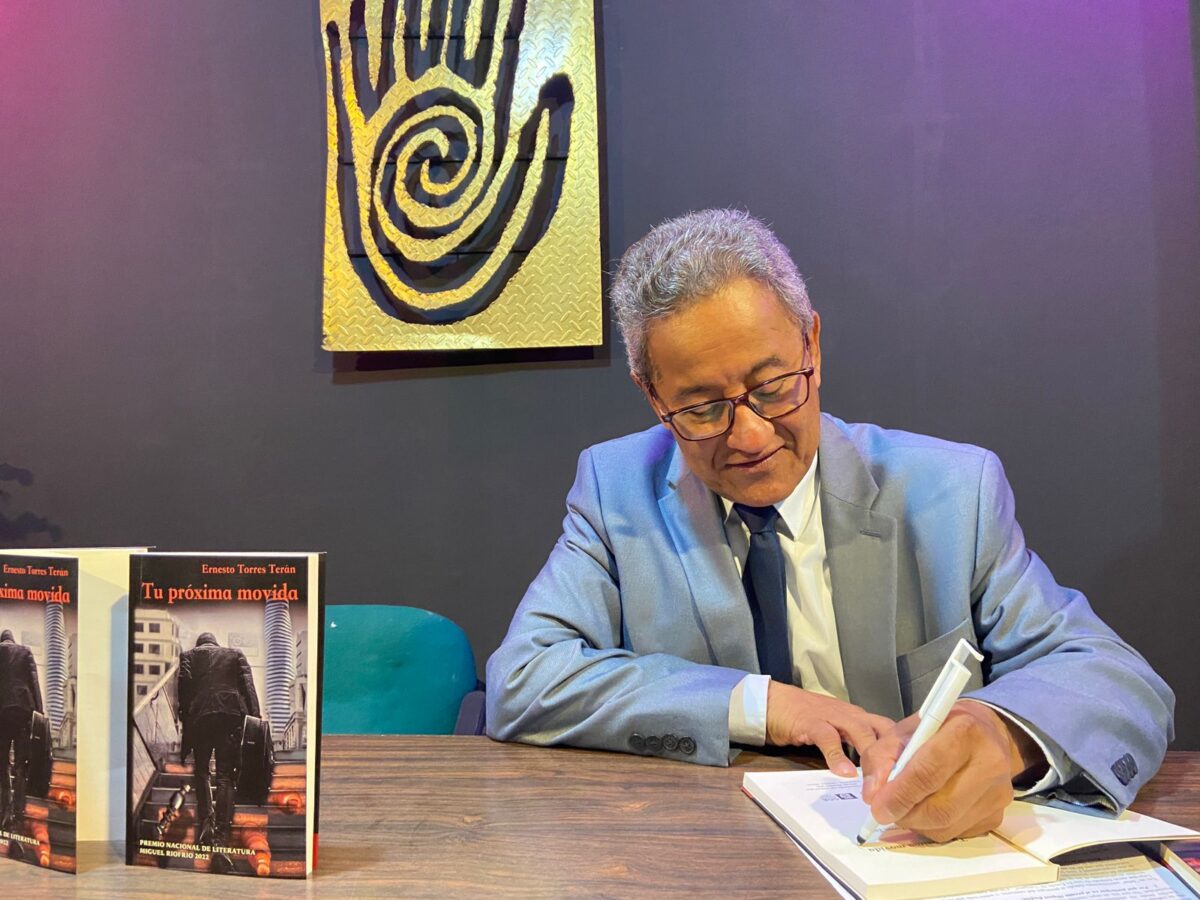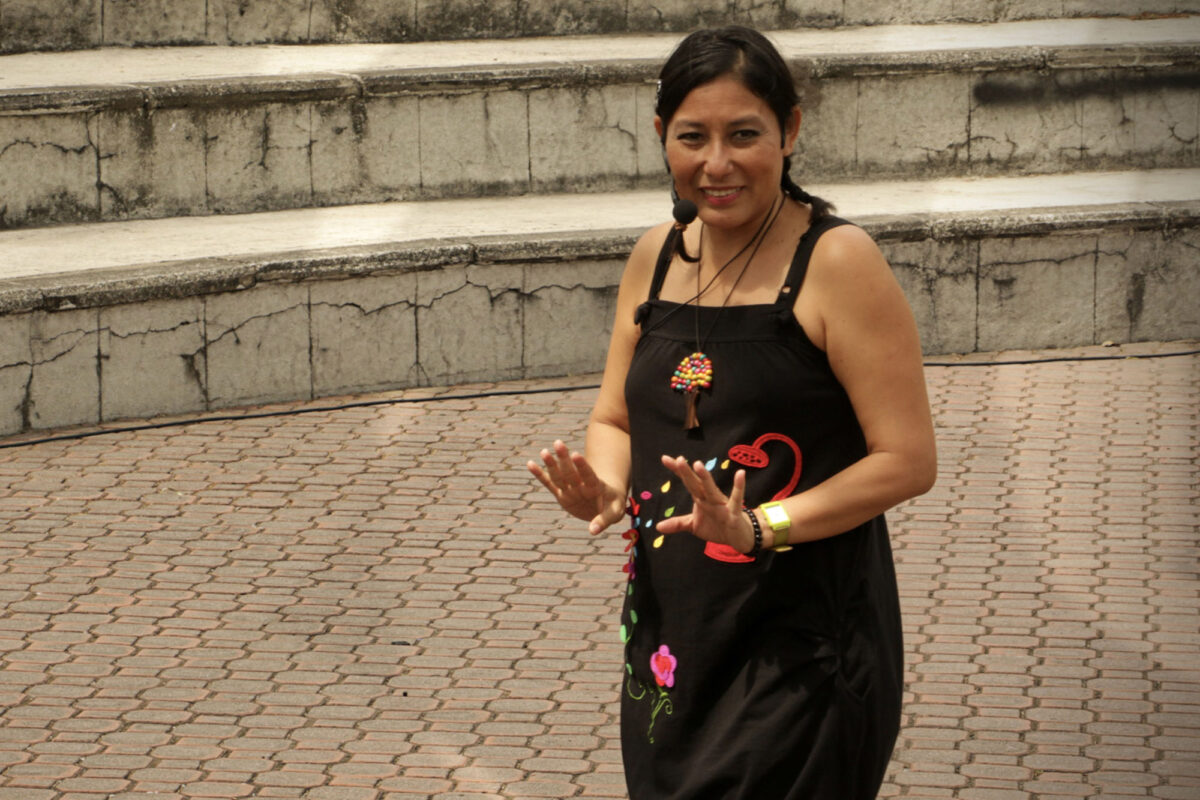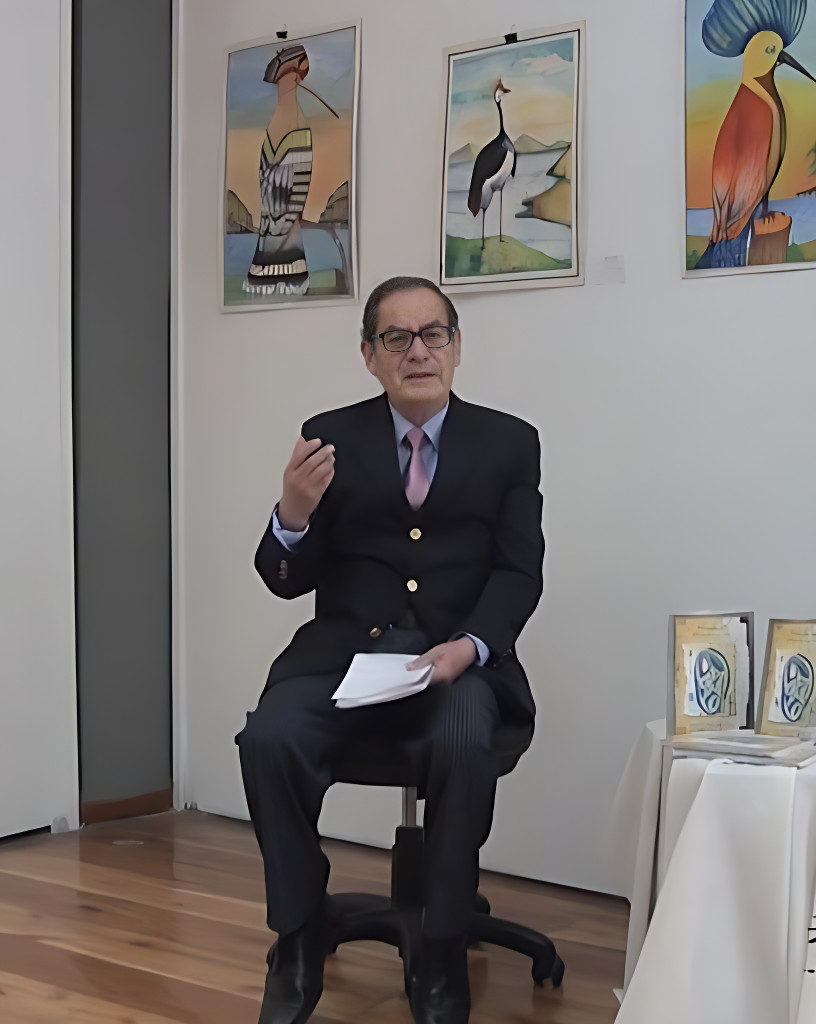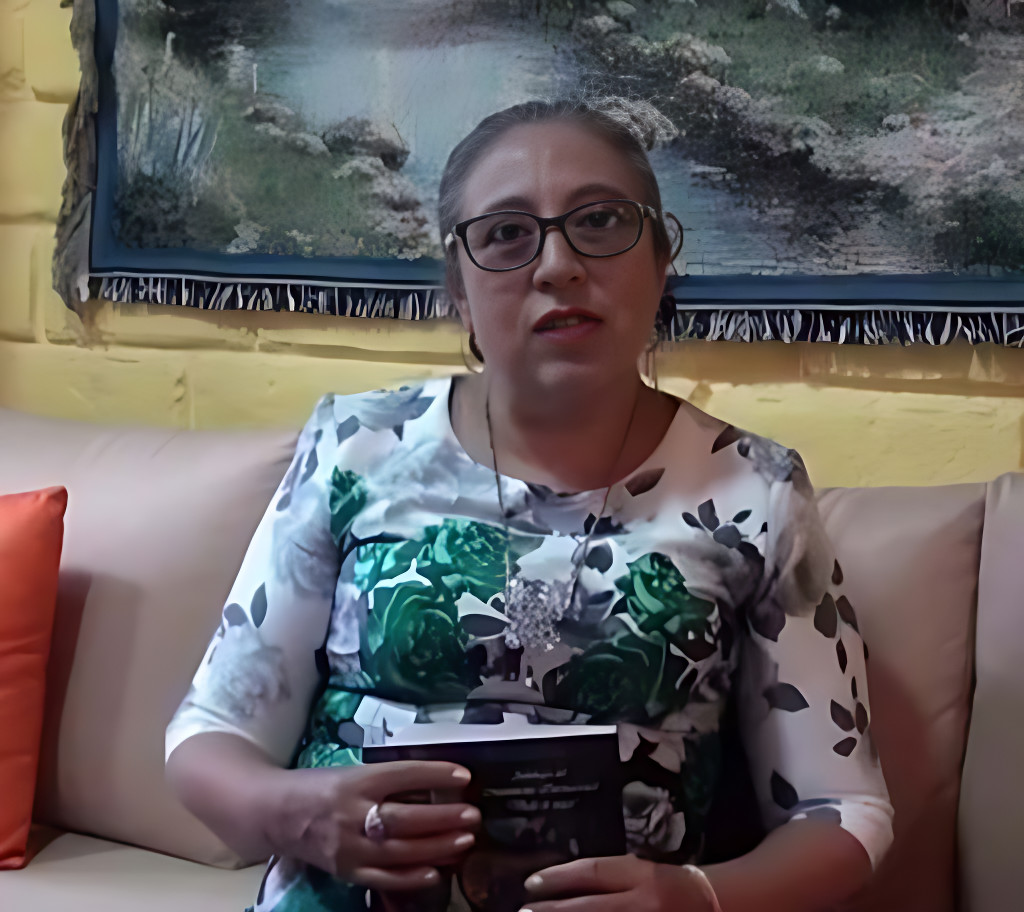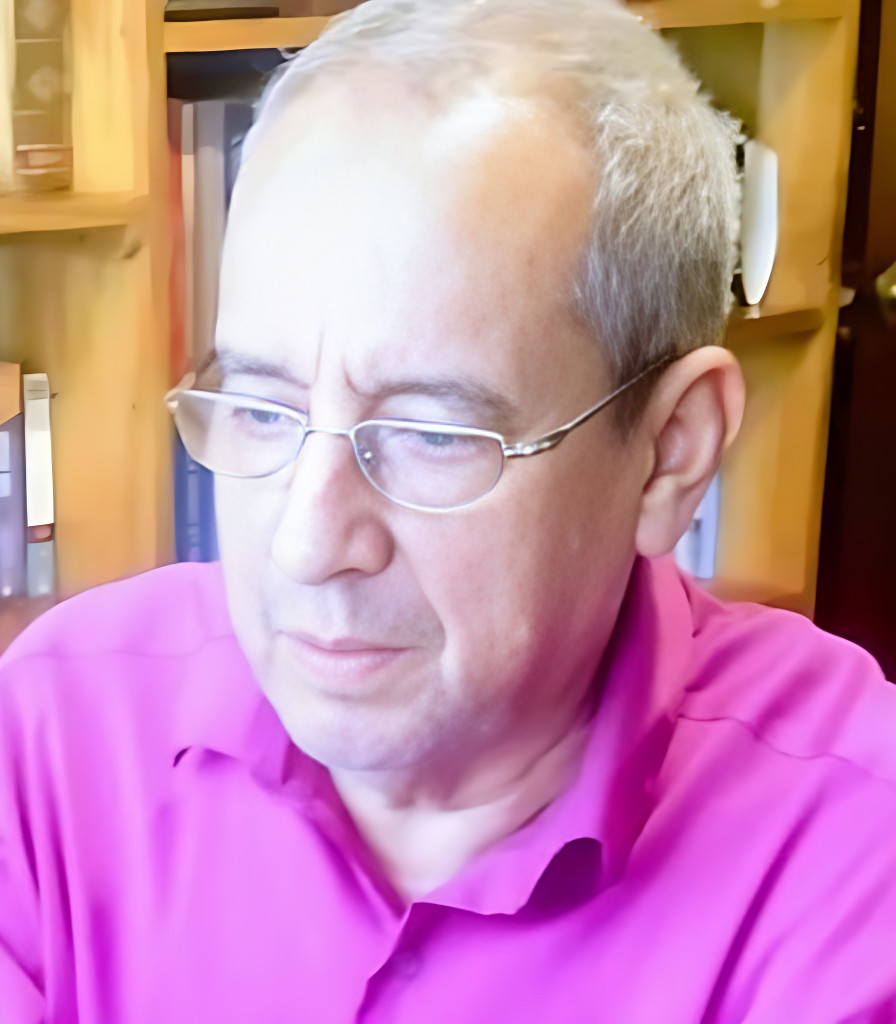Teresa Molina de Muñoz (Piñas, August 10, 1888 – Quito, November 24, 1950) was an Ecuadorian poet and educator known for her contributions to the magazine El Hogar Cristiano and her pseudonymous writings as La Orquídea in the newspaper El Universo. Born in Piñas, often referred to as the “Orchid of the Andes,” she received her early education in Catacocha, Loja, before moving to Quito. In Quito, she worked as a teacher at several schools, including Fernández Madrid, Colegio Experimental Simón Bolívar, and Normal Manuela Cañizares. Some of her notable works include “Por el milagro de la Ciencia,” “Mi hijo,” and “La novela de los Salmos.” Her cultural legacy continues through the educational institution named after her in Piñas, Ecuador, and her valuable contributions to literature and education in the province.
Continue reading “Teresa Molina de Muñoz”Author: richard
Esperanza Matheus y Yerovi
Esperanza Matheus y Yerovi (Guayaquil, March 2, 1917 – December 1, 2006) was a distinguished Ecuadorian linguist, academic, writer, and cultural advocate. Among her notable works were “Mito y Mística del Siete,” “Ecuatorianismos de Costa y Sierra,” and “César Andrade y Cordero: Vida y Obra.” Her commitment to advancing culture was recognized with significant honors, including her election as a member of the Ecuadorian Academy of Language in 1980, where she delivered an impactful speech titled “La Participación de la Mujer Ecuatoriana en la Creación de la Cultura del País” (The Participation of Ecuadorian Women in the Creation of the Country’s Culture). Additionally, she received the Lazo de Dama de la Orden del Mérito Civil from Francisco Franco and the Lazo de Dama de la Orden de Isabel la Católica, presented by Juan Carlos I of Spain. Esperanza Matheus y Yerovi’s contributions to Ecuador’s cultural and literary landscape remain an enduring testament to her legacy.
Continue reading “Esperanza Matheus y Yerovi”Josefina Egas Montalvo
Josefina Egas Montalvo (Guayaquil, 1920 – February 2, 2014) was an Ecuadorian poet and a writer. She was known for her contributions to poetry and literature, as well as her dedication to education. Among her notable works are “Poetas Periodistas Guayaquileños” (2007), a comprehensive exploration of the biographies of Guayaquil’s literary figures, and her inclusion in “La Voz de Eros: Dos Siglos de Poesía Erótica de Mujeres Ecuatorianas” (2006), highlighting her poetry alongside other renowned female authors. Her dedication to literature and education earned her several awards and recognitions, including honors from the Casa de la Cultura Ecuatoriana and the Círculo de Periodistas del Guayas. In 2011, she received a prestigious award for her exceptional career as a teacher and poet, cementing her legacy in Ecuadorian literature.
Continue reading “Josefina Egas Montalvo”Patrizia Di Patre
Patrizia Di Patre is an accomplished Italo-Ecuadorian philologist and literary critic known for her extensive contributions to the study of medieval, Renaissance, and Baroque literature and culture in Europe and the Americas. With a doctorate in letters from the University of Florence and a doctorate in philosophy from the Pontificia Università Urbaniana, her remarkable academic journey has paved the way for a distinguished career. Notably, she has shed light on Ecuador’s early literary heritage and organized international academic events while serving as a professor at the Pontifical Catholic University of Ecuador. Her prolific research and numerous publications underscore her expertise in the field of literature and cultural studies.
Continue reading “Patrizia Di Patre”Catalina de Jesús Herrera
Catalina de Jesús María Herrera Campusano, known as Sor Catalina de Jesús Herrera (Guayaquil, August 22, 1717 – September 29, 1795) was a revered Ecuadorian religious figure and a talented writer. She demonstrated an early affinity for learning, thanks to her mother’s guidance in reading, writing, and religious education. Catalina embarked on a profound spiritual journey that led her to the Monastery of Santa Catalina de Siena in Quito. There, she adopted the religious name “Catalina Luisa de Jesús, María y José” and dedicated her life to faith and contemplation. Her contributions extend beyond her religious devotion, as she left a lasting literary legacy through her autobiography, “Secretos entre el alma y Dios,” which was completed in 1760 and remains a source of inspiration for readers interested in her spiritual insights and reflections. Catalina de Jesús Herrera’s life and writings continue to be celebrated for their profound wisdom and devoutness.
Continue reading “Catalina de Jesús Herrera”Mariana Cortázar
Mariana Cortázar Crespo (Portovelo, 1946) is an Ecuadorian writer and historian. Her work is characterized by a deep commitment to researching and narrating the history of her native province, El Oro, and other coastal regions of Ecuador. A significant part of her literary contribution lies in her valuable research, with books like “Portovelo cuenta su historia” and “El Oro de Portovelo” standing out as notable examples of her ability to unravel and share the rich history of her region. These works have earned her numerous accolades, including the prestigious David Rodas Maldonado Award from the Casa de la Cultura Ecuatoriana, núcleo El Oro, in 2014. In the same year, she was also honored with the Rosa Vivar Award by the Municipality of Portovelo. Mariana Cortázar’s dedication to preserving and promoting Ecuador’s cultural heritage is further evident in her book “Julio Jaramillo: Nuestro patrimonio,” which pays homage to the iconic Ecuadorian singer Julio Jaramillo.
Continue reading “Mariana Cortázar”Zoila María Castro
Zoila María Castro (1907-2001) was a prominent Ecuadorian writer who, alongside Mary Corylé, Eugenia Viteri, and Carmen Acevedo Vega, stands as one of the most significant female figures in Ecuadorian literature from 1948 to 1960. Her most important work, titled “Urbe,” is a book of short stories that offers a social realist perspective on Ecuadorian immigrants in the U.S. Among her notable works are “En el norte está el dorado” and “Verónica, historia de amor.”
Continue reading “Zoila María Castro”Pedro Florentino Valdez
Pedro Florentino Valdez Alcivar, originally from Rocafuerte, stood as a testament to raw poetic talent. Despite not being able to read or write, he had an extraordinary ability to share profound thoughts through the oral tradition. In his younger years, he settled in Chone, where the environment deeply influenced his oral verses. Milton Erazo Vera compiled and introduced Valdez’s spoken poetry to a broader audience through “El poeta de la Montaña” in 1957. Horacio Hidrovo further honored Valdez by depicting him as deeply connected to nature’s essence. By the 1990s, “Amorfinos costeños” compiled various forms of Valdez’s oral poetry, from décimas to quartets. His work, abundant with themes like love, hardships, natural beauty, and cultural celebrations, reflected his desire to connect with the written word. Valdez’s legacy remains a powerful reminder of the beauty of oral traditions and our deep bond with nature.
Continue reading “Pedro Florentino Valdez”Juan Suárez Proaño
Juan Suárez Proaño (Quito, 1993) is an Ecuadorian poet and editor. He studied Communication and Literature at the Pontifical Catholic University of Ecuador and has written several acclaimed poetry collections, including “Lluvia sobre los columpios” (2014) and “Las cosas negadas” (2021), which won a national poetry award in 2021. In addition to his writing, Proaño works as an editor for El Ángel Editor, a publishing house, and coordinates “Poesía en Paralelo Cero,” an international poetry event in Ecuador. His blend of literary talents has made him a significant figure in both the local and international literary community.
Continue reading “Juan Suárez Proaño”Ernesto Torres Terán
Ernesto Torres Terán (Guayaquil, 1956) is an Ecuadorian medical doctor and prolific writer. He began his literary journey with the publication of the short story collection “Del puerto secreto” (1982), followed by “Y sin embargo se mueve” (1983) and “Territorio de fantasmas” (2006). His novels include notable works like “Asedios profanos,” for which he won the Onetti-Rulfo Prize in 1996, “Mínima gloria” (2012), and “Diecisiete ballenas en una pecera” (2014), earning him various awards. Recently, he won the Miguel Riofrío Prize for his latest novel “Tu próxima movida” (2022), further adding to his acclaim as a prominent Ecuadorian writer.
Continue reading “Ernesto Torres Terán”Ángela Arboleda
Ángela Arboleda Jiménez (Guayaquil, 1969) is a journalist, publicist, dancer, oral storyteller, writer, cultural manager, and teacher. Her literary career began under the mentorship of Miguel Donoso Pareja, and she has published works such as “Cuentos y tradiciones orales del Ecuador” (2006), “Nadie sabe qué hará mañana” (2008), “Tuétano” (2021), and “Esa mujer es la muerte” (2022). A dedicated preserver of oral traditions, Arboleda has toured festivals for over 20 years, and her significant contributions to cultural management are marked by her leadership in various storytelling events. She has been recognized with nominations for Woman of the Year in Art and Culture. She holds advanced degrees in Cultural Management and teaches at the University of the Arts (UArtes) in Guayaquil.
Continue reading “Ángela Arboleda”Fredy Byron Arias Calero
Fredy Byron Arias Calero is an Ecuadorian medical doctor and poet. He is a member of the literature section of the Chimborazo chapter of the House of Ecuadorian Culture, and the International Network of Writers for the Earth (RIET), an organization advocating for a shift in attitudes to promote greater respect for the Earth and all its inhabitants. His 2021 work, “Poesías del Silencio Escrito,” further attests to his remarkable contribution to the realm of poetry.
Continue reading “Fredy Byron Arias Calero”Gladys Paredes Bonilla
Gladys Erminia Paredes Bonilla (Riobamba, 1965) is an Ecuadorian poet and educator. She is a member of the literary section of the Chimborazo chapter of the House of Ecuadorian Culture. She represented Ecuador at the 2020 “Second Virtual Book Fair Italy.” Bonilla is part of the “Vuelo de Mujer” movement, a group of 45 women using poetry to combat violence against women and promote respect. Her 2018 poetry collection “Instantes,” was published by the Chimborazo branch of the House of Ecuadorian Culture.
Continue reading “Gladys Paredes Bonilla”Fernando Macías Pinargote
Fernando Macías Pinargote (Portoviejo) is an Ecuadorian author, poet, and academic known for his contributions to the cultural and literary landscapes of his home province of Manabi. His illustrious career spans roles as a cultural promoter, a newspaper editorialist, a professor, and a director of various cultural institutions. Macías Pinargote’s literary repertoire is equally impressive, featuring diverse works from poetry collections like “El bus de las 5” (1976), “Teoría del juego” (2007), and “El signo” (2011) to journalistic chronicles like “La Primera pantalla” (2003) and his latest work in 2023, “El fútbol junto al río,” a historical account of establishing Portoviejo’s first soccer stadium. His unique narrative style and commitment to the cultural enrichment of his country distinguish Macías Pinargote as a significant figure in Ecuadorian literature, journalism, and academia.
Continue reading “Fernando Macías Pinargote”Roxana Landivar
Roxana Landívar (Guayaquil, 1997) is an Ecuadorian poet. Landívar’s poignant poems, characterized by their evocative imagery and exploration of human themes, have garnered wide acclaim. They have been published not only in her collections “Ciudades cemento” (2019) and “Fractura primaria” (2020) but also in distinguished magazines and anthologies across Ecuador, Peru, Mexico, Argentina, Brazil, and the United States. With her participation in various festivals and international book fairs, Landívar continues to enrich the Latin American literary sphere, reaching out to a broader audience, and shaping conversations around contemporary poetry.
Continue reading “Roxana Landivar”
